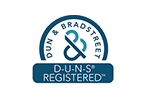Debt Settlement for Credit Cards Vs Credit Repair
When you’re struggling with overwhelming debt, it can be hard to get a clear view of all your options. Between debt settlement, credit repair, or even bankruptcy, the details can be confusing. Liberty Debt Relief has been helping customers just like you regain their financial health and move confidently into the future. Here, we’ll cover the differences between credit repair and credit card debt settlement and how each can affect your finances.
What is Credit Repair?
Simply put, credit repair is the process of improving your credit score by minimizing or eliminating negative items from your credit report. Checking your report and going over it thoroughly can help you identify incorrect information, such as late payments for accounts you paid on time. If you do discover a mistake, the next step is contacting a lawyer or financial expert who specializes in credit repair and can help you build your case.
These professionals will be able to contact the credit bureaus on your behalf and work on getting the false negative marks removed from your credit history. The process takes time, and you’ll have to provide proof to support your claim, such as a payment confirmation number when arguing a late payment, but this can improve your credit score. Credit repair, however, cannot get rid of or lower your outstanding debt.
Credit Card Debt Settlement
Settlement is an option for gaining relief from credit card debt or some other unsecured debts. This can only happen if the credit card company or lender agrees to accept a settled amount. Creditors are likely to negotiate when it becomes clear that they will not be able to recover the full debt, usually after several missed payments or an extended period of delinquency. Companies like Liberty Debt Relief can help you during the process and are typically more successful at getting the outcome you are seeking due to years of experience with debt settlement. This process also takes time, but it can significantly lessen your debt (sometimes even cutting it in half).
If you elect to employ a debt settlement company, be sure to get the fees in writing upfront. Never utilize a service that requires any form of upfront payment, as this is illegal and you should receive the assistance you need before paying for services. Liberty Debt Relief does not charge any upfront fees.
So, Which Option is Better?
Deciding on credit repair vs. credit card debt settlement can be tricky to navigate. Of course, if you’re struggling financially like so many Americans today, you should employ every option available to pay off your debt. When it comes down to it, debt settlement for credit cards will help you out of debt, while credit repair can only ensure your payments and debts are recorded properly. On the other hand, if you’re able to keep up with your payments but are just concerned about mistakes on your report, credit repair is probably more appropriate.
Liberty Debt Relief
Contact Liberty Debt Relief today for a free consultation. Our experts can evaluate your specific situation and provide options to match your needs. Regain your financial health and freedom with help from our amazing staff. If you are overwhelmed by credit card debt, medical debt, private student loans, or other forms of unsecured debt, the team at Liberty Debt Relief can help with your negotiations.








